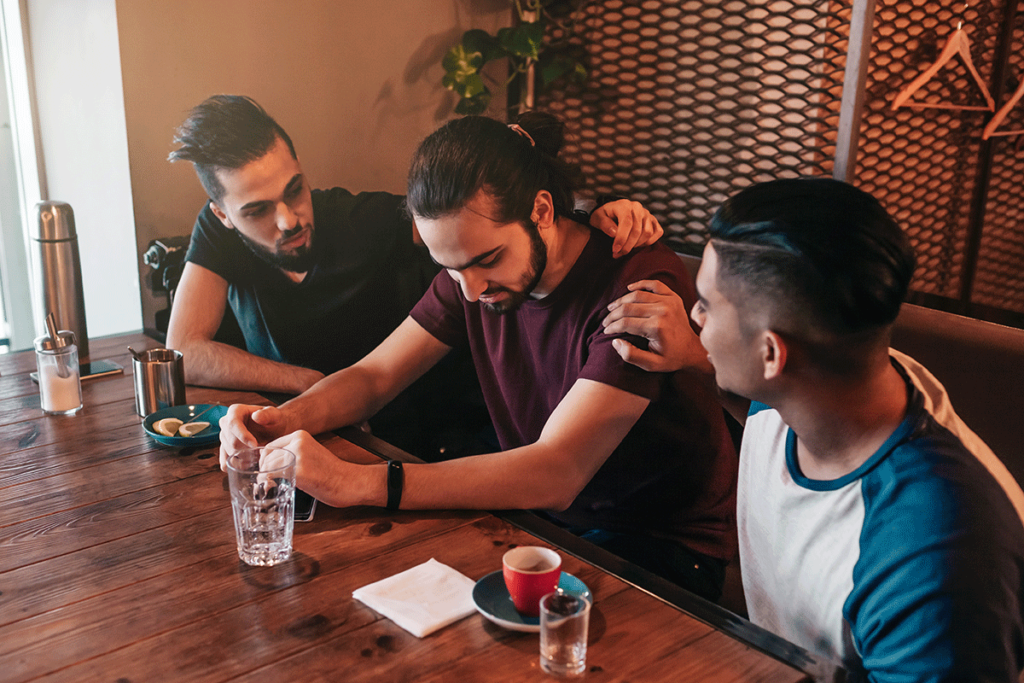Addiction is a lonely disease—a person struggling with alcoholism, the misuse of prescription medications, or illicit drug abuse can feel isolated from others, even close friends and family.
An evident and solid link exists between maintaining healthy social connections and addiction recovery. One of the first things a person learns in addiction treatment is never to let themselves get “too lonely” or “too bored” because the resultant need for stimulation can be a return to old, self-destructive habits. Call 888.296.8976 to speak with someone from the knowledgeable team at Northpoint Recovery about the importance of socializing during addiction recovery and our addiction resources in Boise, Idaho.
The Best Social Connections and Addiction Treatment Strategies Involve Family
The role played by the inner social circle of a person struggling with addiction—their family and close friends—can be crucial to their successful recovery. Active family involvement during addiction treatment has several benefits:
- It allows the treatment staff to see how the substance abuser and the family members interact.
- With this insight, the treatment staff can guide the family on how to avoid any enabling behaviors.
- It motivates the substance abuser to comply with treatment.
- The family can provide ongoing positive support for the substance abuser.
- Family members can communicate with their addicted loved one by verbalizing their concerns and feelings.
- It helps the substance abuser learn about and take responsibility for any harm their addicted behaviors may have caused—an essential part of the recovery process.
- The painful burden experienced by the family—anger, confusion, resentment—can be lessened when the family receives support from other families during group sessions.
- Family members who have disorders of their own—such as addiction or depression—can be encouraged to seek professional help so they will be able to interact with the recovering substance abuser in a healthy manner.
- The substance abuser can put into real-world practice what they have recently learned in treatment.
On top of their loved one getting professional help to overcome addiction, family members can also be encouraged to join 12-Step fellowship support groups such as Alcoholics Anonymous (AA).
Fellowship with Peers Aids Addiction Recovery
Numerous studies have indicated that social interaction with others can influence other “unwanted” behaviors and emotions, such as depression, obesity, alcohol consumption, and smoking. Put another way, someone’s “social network” helps determine their actions.
No medication, counselor, or physician can guide someone struggling with addiction to long-lasting, successful sobriety as another person who has dealt with or is dealing with the same cravings and life issues. Peer support and fellowship—whether through AA, Narcotics Anonymous (NA), or counselor-led therapy groups—provides a newly sober and still-fragile substance abuser with a sense of belonging and community. When peer support is used in conjunction with traditional addiction treatment, the result is improved outcomes in:
- Self-esteem
- Education
- Employment
- Satisfaction
- Housing stability
- Medication adherence
- Treatment engagement
- Reduction in the need for acute care or hospitalization
The importance of socializing during addiction recovery cannot be overstated. Peer support can improve the overall quality of life for people struggling with addiction recovery. This type of support works even online—social media plays a huge part in addiction recovery, providing social connections and support for those unable to attend traditional meetings.
Learn How Social Connections and Addiction Recovery Are Linked in Idaho at Northpoint Recovery
Social interaction—hanging out with family and friends, joining fellowship support groups, or engaging with people on social media—is not intended to replace traditional, evidence-based addiction treatment by licensed professionals. However, social connections and addiction treatment programs can work well together when overcoming substance abuse behaviors. Contact Northpoint Recovery today at 888.296.8976 to learn how our knowledgeable team can help you or your loved one recover from addiction.

